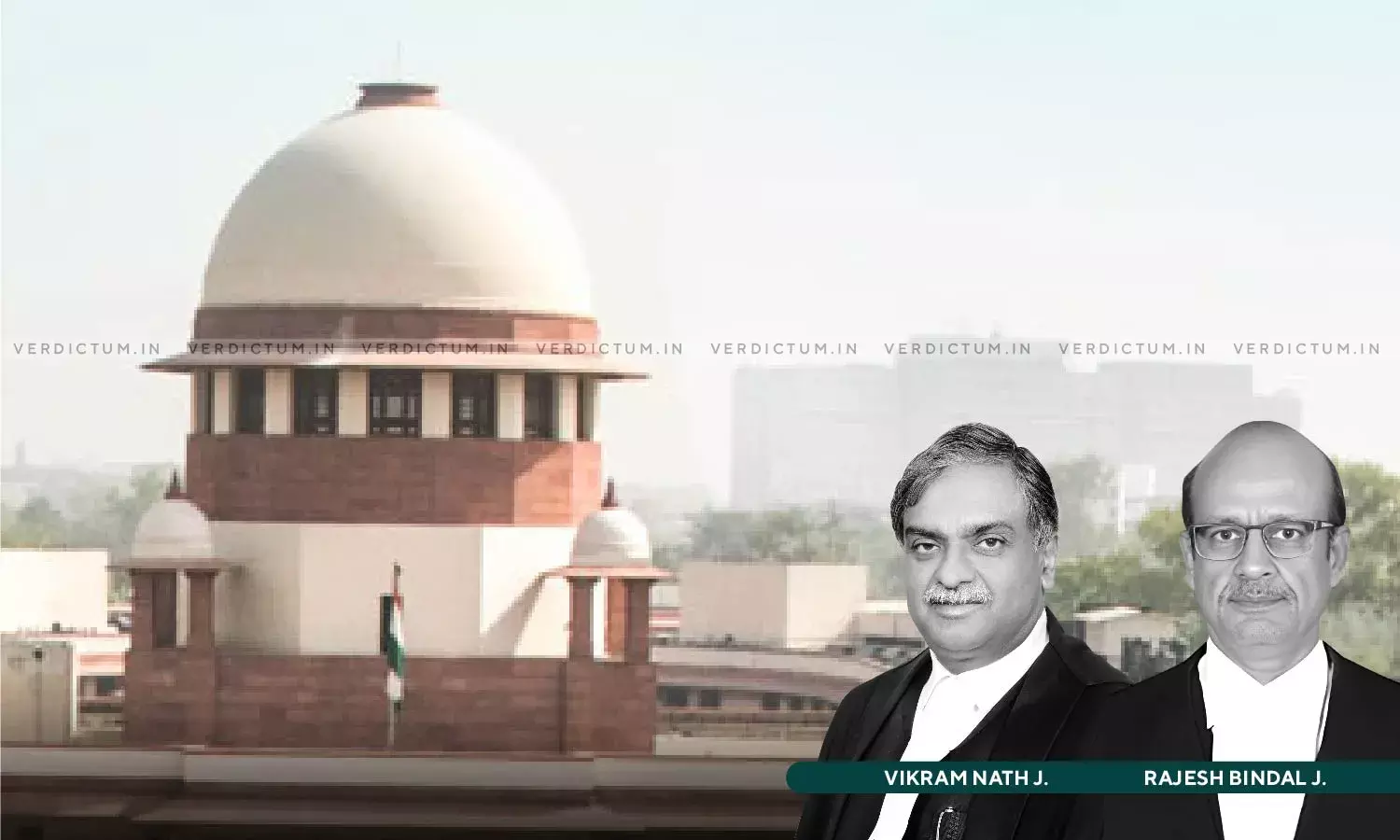Act Of Killing Happened During A Fit Of Anger In The Heat Of A Passionate Verbal Quarrel Is Not Murder: Supreme Court
The Supreme Court set aside murder conviction of an accused observing that his act of killing happened during a fit of anger in the heat of a passionate verbal quarrel.
The court therefore invoked Exception 4 of Section 300 and convicted him for culpable homicide not amounting to murder.
The Bench comprising Justice Vikram Nath and Justice Rajesh Bindal observed, “Hence, it can be safely concluded from the evidence led in the present case that the appellant’s overt act of killing the deceased happened during a fit of anger in the heat of a passionate verbal quarrel and would fall under Exception 4 to Section 300 IPC. Moreover, the clear intent needed to prove culpable homicide amounting to murder has also not been established by the prosecution”.
Advocate T. Harish Kumar appeared for the Appellant and Senior Advocate Joseph Aristotle appeared for the Respondents.
The Appellant was convicted of culpable homicide for the murder of Kolandaippam. The motive for the murder was a longstanding enmity over a land dispute between the Deceased and the Appellant. The Appellant and two others confronted the deceased and his companions, and during the argument, the Appellant and another accused stabbed Kolandaippam multiple times with poor knives. The Appellant was convicted based on the weight of the evidence, which included the recovery of the murder weapon, the consistency of the eyewitness testimonies, and the forensic evidence linking the blood group from the material objects to the deceased.
The Trial Court had convicted them under Section 302 of the IPC and sentenced them to life imprisonment. The High Court also affirmed the order. Aggrieved, the Appellant approached the Supreme Court challenging the judgment and order.
The Court noted that the evidence presented in the Trial Court, along with the facts and circumstances of the case, unequivocally established that the wound inflicted by the appellant was the direct cause of the deceased person's death.
The Bench framed the following issue: “whether the act of the accused is culpable homicide amounting to murder or not. whether the acts of the accused would come under Exception 4 to Section 300 IPC or would be an act of culpable homicide amounting to murder punishable under Section 302”.
Referring to the case of Rampal Singh v State of UP [(2012) 8 SCC 289], the Court emphasized the distinction between culpable homicide amounting to murder and culpable homicide not amounting to murder. The Bench observed that the classification depends on the evidence presented during the trial.
Furthermore, in the case, the Bench observed that the Appellant had abruptly stabbed the deceased during a heated verbal argument rather than a preplanned attack with the intent to cause death. The previous enmity contributed to the argument but did not lead to a premeditated fatal assault. The Appellant's actions were characterized as impulsive, occurring suddenly in the heat of passion and without a pre-planned intention to kill the deceased.
Accordingly, the Court partly allowed the Appeal and modified the punishment of 10 years of Rigorous Imprisonment.
Cause Title: Mariappan v State Rep. By Inspector Of Police (2023 INSC 1034)












